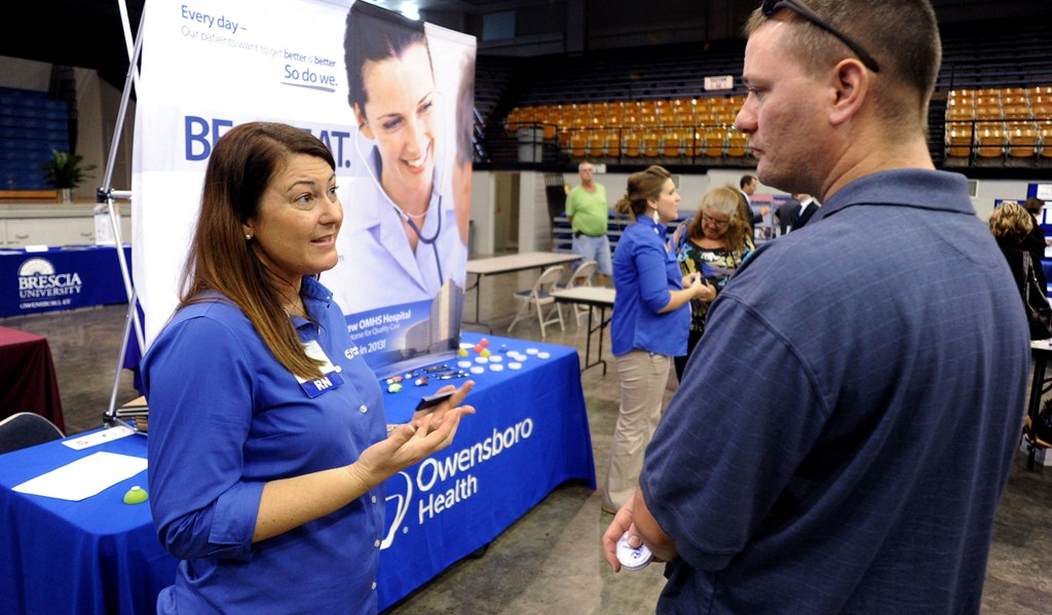Advertisement
In 2012, the Organization for Economic Cooperation and Development tested 15-year-olds in 64 countries in math, science, and reading. Out of 64 countries, the U.S. Scored 23rd in science, 20th in reading, and 29th in math. Not only is this ranking lower than our previous ranking in the 2009 test, but we ranked this low despite spending the 5th most per-student out of the 64 countries.
After this underwhelming high school experience, young people move on to the big next step: college, which isn't such an exciting, empowering step into adulthood anymore, unless you believe taking on debt and collecting unemployment after college constitutes an initiation into adulthood. And before anyone blames "entitled lazy millenials", consider the statistics: In two decades, the cost of private tuition has nearly doubled and public tuition has nearly tripled (adjusted for inflation). It's impossible for most young people to "work their way through college," and more than two-thirds of recent graduates leave school in debt.
As the cherry on top, these young people who have followed the advice of their parents and the culture at large to go to college and get a degree are now faced with poor-to-no job prospects. Since nearly everyone is expected to get a bachelor's degree, the degree is less and less of a guarantee of employment. Once a college degree was significant on a resume. Now not having a bachelor's has become a
Recommended
Advertisement
Sadly, many of our public figures continue to push all young people in this direction. President Obama has promoted the idea that every American should go through some amount of college. Only around 70% of young people currently go to college. Imagine how meaningless college experience would become to typical employers if 90%+ of young people went to college.
Most of this information isn't new to anyone paying attention to education over the last few decades. The problems have just gotten worse and are now creating a mass of young people who are graduating with lots of debt they're unable to pay off because they can't even find an entry-level job. To dig our way out of this mess, we as a culture need to think big and not be afraid to rewrite our practices, traditions, and public rhetoric in order to find a solution.
We should consider the homeschoolers. Modern homeschooling didn't really take root in the U.S. until the 1980s and wasn't popularized until the 1990s. Even now only about 4% of American children are homeschooled, but those 4% are showing incredible results. Their education costs roughly 90% less than the average public schooler, yet they consistently score much higher in standardized tests. They get their high school degrees at a higher rate, they earn better grades, and
Advertisement
So what can colleges learn from the success of these K-12 students? Ask the typical homeschooler about their experience and they will tell you that they benefited from the flexibility homeschooling provides. Students work at their own pace, flying through and going farther in subjects they master easily while taking more time for the subjects with which they struggle. Their schedule is flexible and can more easily accommodate extracurricular activities, early college classes, socializing, volunteering, and family needs. Moreover there is a cost savings because parents are already providing the housing and food and teachers that dominate schools' budgets. The only major out-of-pocket costs are books and the occasional outside tutor, class, or extracurricular fees.
This is where colleges can take a page out of the homeschool playbook—they can achieve the flexibility and cost-savings of homeschooling by utilizing the Internet. This is hardly a new idea: The number of online courses and colleges offering them is exploding. Around one-third of college students take some online courses for credit (over 6.7 million in 2011). More than 70% of public and for-profit colleges and nearly 50% of private nonprofit colleges are offering full online programs.
Advertisement
Online courses offer a way to learn skills and earn a degree while having the flexibility in time and space to also have a normal full-time job, or a family, or a more regular schedule. Plus online classes are often more cost-effective, and they will become even cheaper as the percentage of online students grows. The demand for expensive student services, housing, cafeterias, sports stadiums and programs, workout centers, entertainment venues, and a host of other college expenses will decrease dramatically as the percentage of online students increase. A college education will once again be focused on education, not the four-year "experience" of prolonged-adolescence that college has become for so many young people today.
Another exciting online development is the massive open online course (MOOC). These free courses (many offered by prestigious universities) are attended by thousands of students simultaneously. Many of these even offer certificates of completion if the student decides to pay. This is an excellent alternative for acquiring skills and knowledge without spending an arm and a leg. If MOOCs mature into courses that can actually provide some form of credit and command some respect, they could be a game-changer.
Let me add one caveat – I am not dismissing the importance of a traditional liberal arts education. An extended liberal arts education is a significant and important institution in our society, but it is not for everyone. Let's face it, most college-bound young Americans are not really going to get a liberal arts education. They're going to take some combination of skills-oriented, basic knowledge, and frivolous courses in order to earn a degree which they hope will give them a better chance to get a job. Looking to change that wasteful system does not mean we have to throw the liberal arts baby out with the bathwater. If we really believe most Americans need further education after high school, then that education needs to look different than our current model. Forcing every young person through a cookie cutter shaped like the skeleton of a four-year liberal arts education isn't helping anyone, and it's destroying the employment prospects and financial future of the very young people we are trying to help.
Advertisement
It's time for a change in the American college structure, and the more quickly we get on board the more quickly we can help young people. Parents can quit holding up the traditional four-year on-campus degree as the ideal for all young people. They can encourage their new high school graduates to look into alternatives like online degrees, apprenticeships, and local community and technical schools. Businesses can stop the idiocy of treating a bachelor's degree as the default entry point for considering any job applicant for any position. The bachelor's degree means next to nothing now. Employers should get their heads out of the sand and consider creating paid apprenticeship/intern programs that will teach young people what they need to know to become excellent employees without taking the time and debt to go through four years of irrelevant classes. Public leaders can look to encourage alternative approaches—particularly the development of robust online college resources. Finally colleges can see the writing on the wall and work at developing new options and expanding existing alternatives. Changes brought by the Internet have crippled and destroyed previous industries—let's hope quality colleges and universities adapt in time. A new world of post-high-school education is inevitable. The only question is how quickly we can get there and lift the burden currently weighing down America's youth.

























Join the conversation as a VIP Member